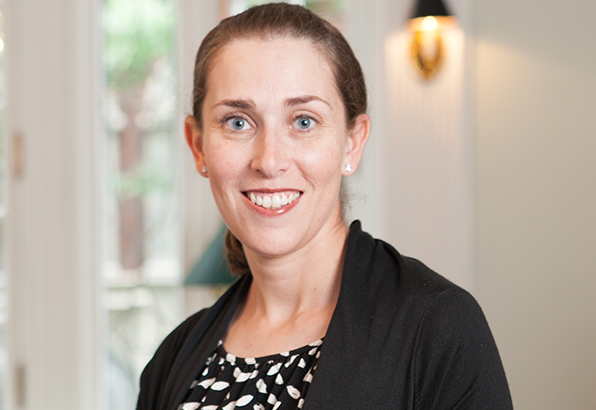Your Daily Phil: The future of Ukraine’s Jews + A New Yorker cartoonist takes on the Torah
Good Thursday morning and chag atzmaut sameach!
When Josef Zissels talks about the war in Ukraine, he starts with 2014, when Russia annexed Crimea and began funding separatist militias. Eight years later, Zissels, who has served for three decades as ??chairman of the Association of Jewish Organizations and Communities of Ukraine, does not anticipate that the war will be over soon.
The former Soviet dissident and political prisoner described to eJewishPhilanthropy an unvarnished vision of the future in which he hopes Ukraine and its Jewish community can both support themselves, even while under constant attack by Russian forces. “I don’t like it, but I was right in saying that this war would last for a long time,” Zissels told eJP via an interpreter on Wednesday. “So we need to adapt. We need to learn how to live during this war, like Israel, although we have a more powerful enemy.”
Born in Tashkent, Uzbekistan, in 1946, Zissels became active in the Soviet refusenik movement in the 1970s and spent three years in a penal colony. Since 1991, he has been at the head of Ukraine’s Jewish community. He has remained in Kyiv during the past few months and kept working amid the fighting.
His priority for the Jews who remain in Ukraine, he said, is also self-sufficiency. He understands the need for support from global Jewish organizations, but he seeks a future where it’s unnecessary. He said, “Even after the war, there will be a major Jewish community here, and I hope that we’ll eventually come to the stage when we’ll be 100% independent financially and when we’ll be able to provide financial help to Israel and to other communities.”
Money has been the primary way American Jewish groups have supported the war’s victims, sending tens of millions of dollars in aid. Israel has also sent humanitarian aid and set up a recently closed field hospital, in addition to sending defensive equipment for aid workers.
Zissels called on Jewish institutions to speak out more forcefully against Russian aggression. Beyond aid, Zissels told eJP, “The Jewish community… has a lot of channels, and they could use them to tell the world more about this current threat.”
Complicity in the war, he said, extends to billionaires in Putin’s circle. Zissels feels that in the case of an autocratic country like Russia, the term “oligarch” is a misnomer. “The only oligarch there is Mr. Putin,” he quipped. Still, he supports the sanctions against Jewish billionaires close to Putin, even if they’ve donated to Jewish causes. “I agree that if someone supports these policies [of Putin], these sanctions must be imposed,” he said.
bookshelf
God is a woman, and other revelations in Liana Finck’s ‘Let There Be Light’


Courtesy
One of the most famous stories in the Bible — thanks, in part, to the musical about its main character — is that of Joseph, who was sold into slavery by his brothers before becoming a trusted advisor to the Egyptian pharaoh. The tale begins when Joseph’s brothers throw him down an empty well before selling him as a slave to passing merchants. But what if Joseph stayed in the well, and that well had been full of water, and the pharaoh was a merman who reigned over the depths of the ocean? This is the world Liana Finck imagines for Joseph in her new book, Let There Be Light: The Real Story of Her Creation, an illustrated retelling of the book of Genesis.
“I put Joseph in an underwater cave [because] in the Torah, Joseph is thrown into a well, and I just decided to keep him down there,” Finck told Jewish Insider’s Gabby Deutch in a recent interview, in the kind of sentence that only an artist can utter with no hint of irony.
Twist on the original: The book takes the narrative of Genesis and gives it a modern twist, culled from Finck’s own life and her relationship to gender, sexism, art, God and New York City. With nearly 600,000 Instagram followers and a gig as a frequent contributor to The New Yorker, Finck’s bona fides as an artist are unimpeachable. So, too, is her Jewish background; she is not an amateur in the art of Torah study. As she conceptualized the book, her parents were her hevrutas, or study partners. “I didn’t read all the Rashi or commentators. I knew I would never catch up,” said Finck, referring to the medieval Jewish sage. She understood that whatever spin she put on the sacred text would probably not placate the most traditional adherents of Judaism or Christianity. “But I got into it. And I felt like I was pretty genuine.”
Original story: The idea for the book came from her editor, after her first book — an illustrated memoir about her relationship with her mother, and what it means to be a woman artist (her mother is a painter) — included snippets of biblical passages at the start of each chapter. The process of writing this book, she said, was overwhelming. “After I read the book of Genesis in Hebrew, I made my own translation, kind of referring to the various other translations. And then I edited it down, and then I started thinking of it in terms of comics,” said Finck, who grew up attending Solomon Schechter Jewish day schools in the New York City suburbs.
Modern-day Abraham: The book continues by reimagining other seminal religious stories with a modern sensibility. Abraham is a struggling art student, depicted as such because in Finck’s telling, “God has told him that he’ll be a great artist one day as opposed to that he’ll have a great nation. It’s just something that I understand,” she said. Abraham the artist lives in New York City, rather than biblical Israel, because New York “is my promised land, a place I always wanted to go to as a kid, and where I ended up, and which I have a fraught relationship with now.”
UNLIKELY PARTNERSHIP
Want systemic change? An unlikely model for Israelis with disabilities has lessons for us all


Courtesy JDC
“Among today’s loudest rallying cries are those for systemic change. The prospect of sweeping transformation is exhilarating and inspiring, especially in the pursuit of justice or equality. But making it a reality is slow going, and that can cause many to give up,” write Jay Ruderman, president of the Ruderman Family Foundation, and Ariel Zwang, CEO of the American Jewish Joint Distribution Committee, in an opinion piece for eJewishPhilanthropy.
Background: “In 2009, we embarked on a journey to ensure the inclusion and independence of the more than 1 million people with disabilities in Israel. The resounding belief at that time was that if you wanted that kind of widespread societal change, the last thing you’d do was bring together a legacy organization, an activist foundation and the government. But that’s just what we did.”
Open to change: “The preconceptions were evident from the start: legacy organizations will be slow-moving, top-heavy and lacking innovative spirit. Activist foundations, especially those rooted in family philanthropy, can be sharp-elbowed and ambitious, single-minded and unwilling to compromise. Government is mostly inflexible, bureaucratic and maintains the status quo rather than rock boats to achieve an end, however important… To meet our goal, we needed to shelve those concerns, be willing to upend them, and be open to change we did not anticipate.”
Thirteen years later: “[W]e’ve achieved a hopeful reality for hundreds of thousands of Israelis with disabilities through our efforts. It’s driven by person-centered human services, changing public perceptions and people with disabilities taking their place as the central decision-makers and policy-shapers for their needs.”
learned optimism
Zionism is our positive psychology


Shutterstock
“The concept of ‘learned helplessness,’ coined by psychologist Martin Seligman, became the cornerstone of his groundbreaking ‘positive psychology’ theory that now helps millions overcome depression and anxiety,” writes Andrés Spokoiny, president and CEO of the Jewish Funders Network, in an opinion piece for eJewishPhilanthropy.
Learned helplessness: “Jews could have become the ultimate example of learned helplessness. Throughout our long exile, it seemed that it didn’t matter what we did, how well we behaved, how law-abiding we were; our host societies eventually turned on us. Even regimes that seemed to promise equality and freedom ended up discriminating against us. In the 19 century, for example, many thought that the emancipation of the Jews would bring an end to anti-Jewish bigotry. The opposite was true.”
Politically expedient: “Despite being loyal Germans, French or Americans, Jews remained the object of suspicion if not outright violence. While the world was celebrating the advent of an era of reason and progress, the Jews of Russia were being slaughtered in pogroms, just because it was politically expedient for a beleaguered czar.”
Herzl and Pinsker: “Many know Theodor Herzl’s The Jewish State, the seminal book articulating the Zionist dream, but fewer know an even more revolutionary work by Leon Pinsker called Auto-Emancipation. Writing a year after the pogroms of 1881, Pinsker observed: ‘[You learned to] shut your eyes and hide your head like an ostrich — you realize there is to be no lasting peace’ but only ‘fleeting intervals of relaxation’ in which ‘we offer only palliatives’… Pinsker went on to describe the depth of our learned helplessness.”
Worthy Reads
Economic Jitters: Will a contracting economy and rising inflation spell trouble for philanthropy? That depends on how the rest of the year unfolds, writes Dan Parks in the Chronicle of Philanthropy. “Danielle Vance-McMullen, an expert in donor behavior and fundraising at DePaul University, agreed that data could have negative implications for fundraising. ‘Historically we have a pretty strong association between the bigger economic picture and giving,’ Vance-McMullen said… While the market has stumbled in recent weeks, Vance-McMullen noted that it’s still roughly where it was a year ago — not great but not necessarily worrisome, either. She noted that she will be much more concerned about the impact on giving if the market weakness persists heading into the fourth quarter of the year, a period that is particularly important for giving.” [ChronicleofPhilanthropy]
Restoring History: The New York Times’ Robin Pogrebin looks at the $11 million effort to restore three synagogues in Venice’s Jewish Ghetto. “The synagogues exemplify the paradox of the Venice Ghetto: It sheltered Jews but also restricted them to the 1.5-acre area. Poorer families were crowded into the low-ceilinged rooms. The professional classes were able to decorate their spaces with opulent furnishings. ‘We were in a way protected in the ghetto and at the same time segregated,’ said Dario Calimani, president of the Jewish Community in Venice, a nonprofit that supports Jewish life in the city. ‘They didn’t want the Jews to mix up with Christians because there was a danger in their view that Jews would convert Christians to Judaism.’” [NYTimes]
Community Comms
Be featured: Email us to inform the eJP readership of your upcoming event, job opening, or other communication.
Word on the Street
Israel’s Health Ministry is expected to soon drop the requirement that arriving travelers be tested for COVID-19…
Stanford University’s first new school in 70 years will launch this fall as the Stanford Doerr School of Sustainability, funded by a $1.1 billion gift from John and Ann Doerr and focused on climate change…
The local anti-poverty organization Robin Hood, in collaboration with Columbia University, released its fourth Poverty Tracker Annual Report, “The State Of Poverty And Disadvantage In New York City,” which assesses rates of income poverty, material hardship and disadvantage in New York City in 2020…
A $10 million pledge from Drexel University alumnus Ronald W. Disney and his wife Kathleen will help promote diversity, equity and inclusion efforts at Drexel by providing scholarship funds and program support for students from underrepresented backgrounds…
TheChronicle of Philanthropy plans to become an independent nonprofit organization. Since its founding in 1988, the publication has been owned by the Chronicle of Higher Education Inc., a private, for-profit company. Stacy Palmer, who helped found the publication in 1988, will become executive director of the new organization…
Sarah Burford has joined Canvas, the Jewish arts and culture funding collaborative incubated at Jewish Funders Network, as its first chief operating officer…
A partnership between the University of Arizona, Jewish National Fund-USA and farmers in southern Israel’s Arava Valley has been renamed the Kasser Joint Institute for Food, Water, and Energy Security, in recognition of a $1 million donation made to the institute by Beth and Mike Kasser…
The Bronfman Fellowship for Jewish teens announced its 36th cohort…
Pic of the Day


Courtesy of KKL-JNF
Students at Colegio Hebreo Tarbut in Mexico City, under the guidance of emissaries from KKL-JNF, gathered this week to mark the recent observances of Holocaust Remembrance Day and Israel’s Memorial and Independence Days.
Birthdays


eJP Archive
Executive director of Micah Philanthropies, Deena Fuchs…
Senior U.S. district judge for the Northern District of Illinois, Robert W. Gettleman… Columnist Richard Bernstein… Best-selling author of 20 novels, Linda Fairstein… Retired judge on the Maryland Court of Special Appeals, once president of the Jewish Community Council of Washington, Peter B. Krauser… Docent at The Metropolitan Museum of Art, Ruth Klein Schwalbe… Member of the Knesset, almost continuously since 1988, Moshe Gafni… President of American Jewish World Service, Robert Bank… David Shamir… Managing director of Silicon Valley-based venture capital firm, Lauder Partners, Gary Lauder… Pulitzer Prize-winning author of three nonfiction books, historian and journalist, Tom Reiss… Executive director of the Legacy Heritage Fund Limited, Yossi Prager… Television writer and producer, known for “The Simpsons,” Josh Weinstein… Nancy Simcha Cook Kimsey… Owner of DC-based PR firm Rosen Communications, Nicole Rosen… Director of public relations at UJA-Federation of New York, Emily Kutner… Head coach of the football team at the University of Arizona, he spent the 2020 season as the QB coach for the New England Patriots, Jedd Ari Fisch… President of Charleston, S.C.-based InterTech Group, Jonathan Zucker… Television correspondent, actress and activist, Lara Berman Krinsky… Former Israeli national soccer team captain, he also played for West Ham United and Liverpool in the English Premier League, Yossi Benayoun… Mayor of Bat Yam, Israel, Tzvika Brot… Member of the Pennsylvania House of Representatives, Michael H. Schlossberg… Former professional golfer, now a fourth-year resident in orthopedic surgery at the NYU Langone, Dr. David Bartos Merkow… Rabbi of Sutton Place Synagogue in New York City, Rachel Ain… Partner at New Enterprise Associates, Andrew Adams Schoen… Maxine Fuchs… Blake E. Goodman…
Email Editor@eJewishPhilanthropy.com to have your birthday included.








